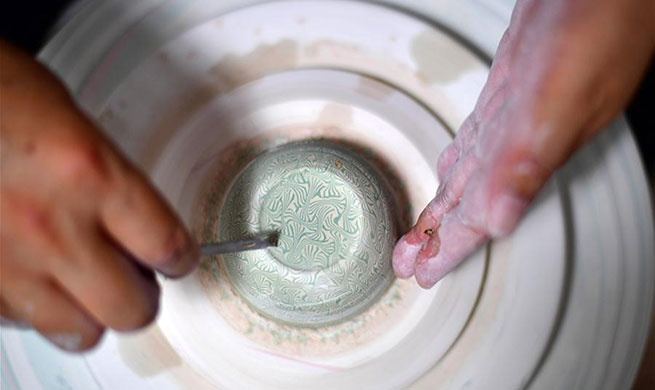DUBLIN, Aug. 29 (Xinhua) -- Nearly 54 percent of Irish adults aged 25 to 64 participate in lifelong learning, ranking the sixth highest in the 28 member states of the European Union (EU), said a survey on Wednesday.
The survey, conducted by the Irish national statistics bureau CSO during the second half of last year, said that the adult lifelong learning participation rate in Ireland stood at 53.9 percent, 8.8 percentage points higher than the EU average of 45.1 percent.
Adults who participate in lifelong learning are defined as those who participate in either formal or non-formal education and learning, said the CSO, adding that formal education is defined as education provided in the system of formal educational institutions while non-formal education refers to all organized learning activities outside formal education.
The CSO survey shows that those who are unemployed are over three times more likely to participate in formal education than those in employment (28.2 percent versus 7.6 percent) while employed persons are more likely to participate in non-formal education than those who are unemployed (59.3 percent versus 38.3 percent).
The survey also finds that younger persons are more likely to participate in lifelong learning than old persons. Over six in ten adults (63.4 percent) aged 25 to 34 participated in lifelong learning compared with only four in ten (40.5 percent) aged 55 to 64, it said.
According to the findings of the survey, professionals are most likely to participate in lifelong learning with four out of every five adults (81.4 percent) engaging in formal or non-formal education. In contrast, those in the skilled trades are the least likely to participate in lifelong learning with only two out of five adults (41 percent) participating in lifelong learning, it said.
When asked about the main difficulty to accessing lifelong learning, four in ten females (39.9 percent) reported they had no time citing family responsibilities as the main difficulty compared with one in five males (21. 6 percent), said the survey.











